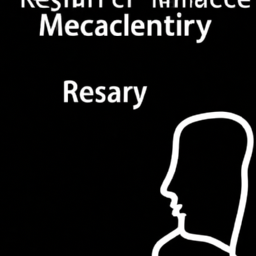As part of your job as a Human Resources executive, you often come across situations which can be difficult to navigate both from a legal and personal perspective. This blog post is devoted to discussing the delicate subject of having one’s partner undergo a background check for your work assignment and answering related questions. We will also cover alternative methods of interviewing, including one-way video conferencing.
When it comes to having a partner undergo a background check for your work assignment, the situation is more nuanced than it appears at first. On the one hand, some employers require that the spouse of the employee be background checked as part of the employee’s job application process. This is most common if the employee is in a position of trust; for example, if they are being considered for a position in a closely held business or certain government positions.
In these cases, a background check is seen as necessary to ensure that the spouse is not in a position to influence or compromise the work of the employee. Background checks can also include credit checks, mugshots, and criminal history, so it is important to make sure that your employer is aware of any potential conflicts that could arise from your spouse being subjected to such a check. At the same time, you should also be aware that the employer may not be able to provide any special considerations or exceptions for the spouse in relation to the background check; however, they may be willing to discuss alternative solutions.
On the other hand, many employers do not require that spouses undergo background checks in order for the employee to qualify for a position. If your employer does not require a background check of your spouse, it is important to consider the potential implications for the work environment and for your own privacy. While employers may not be legally required to run a background check on your spouse, spouses may still have access to confidential information about your job and/or other employees, and this could potentially create potential conflicts of interest.
Furthermore, it is important to be aware that if you are required to have your spouse undergo a background check, employers must behave in a legally compliant manner. This means that the employer must ensure that the background check is conducted in accordance with the applicable privacy laws and regulations, such as the Fair Credit Reporting Act (FCRA). The data collected through the background check must be carefully secured, and employers must never abuse this privilege or use the information for any unauthorized purpose.
You may also find yourself in an awkward situation if you are asked to provide a one-way video interview as part of the hiring process. One-way video interviews are becoming increasingly common and can be a great way for employers to evaluate your skills, background, and personality without requiring you to conduct an in-person interview. At the same time, it is important to note that one-way video interviews can create additional challenges, particularly if your spouse is present while you are conducting the interview.
The presence of your spouse in the room can make it difficult to focus on the questions being asked, and it can also make it difficult to be professional and articulate your answers. You should, therefore, always let your employer know if your spouse will be present during the interview and make clear that your spouse will not interfere or participate in any way.
Finally, you may find yourself in an even more awkward situation if your employer decides to provide advice on parenting or on how to cope with the current situation due to the pandemic. In these cases, it is important to remember that your employer may not necessarily be in a position to provide professional advice. For example, if your employer suggests that your children take notes at meetings, it is important to remember that this is not necessarily professional advice but rather an attempt to provide general support.
In any case, it is important to remember that your employer is ultimately responsible for providing a safe, secure, and comfortable work environment, and this includes ensuring that the appropriate legal and personal considerations are taken into account when dealing with sensitive subjects such as background checks, one-way video interviews, and even parenting advice. Remember, if you feel like your rights are being violated or if you are uncomfortable with the advice your employer gives, it is always best to discuss this with Human Resources or your direct supervisor.
We hope this post has provided some useful guidance when it comes to navigating the delicate subject of background checks, one-way video interviews, and other related topics. As always, if you have any questions or concerns, please do not hesitate to contact Human Resources for assistance.



